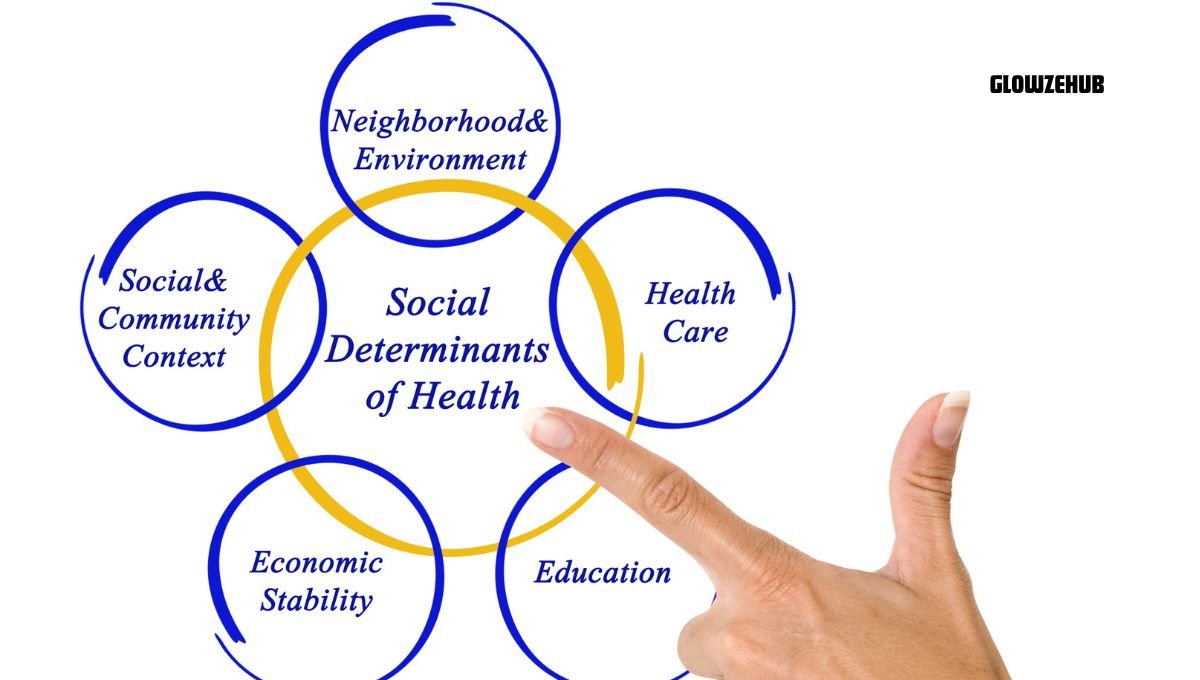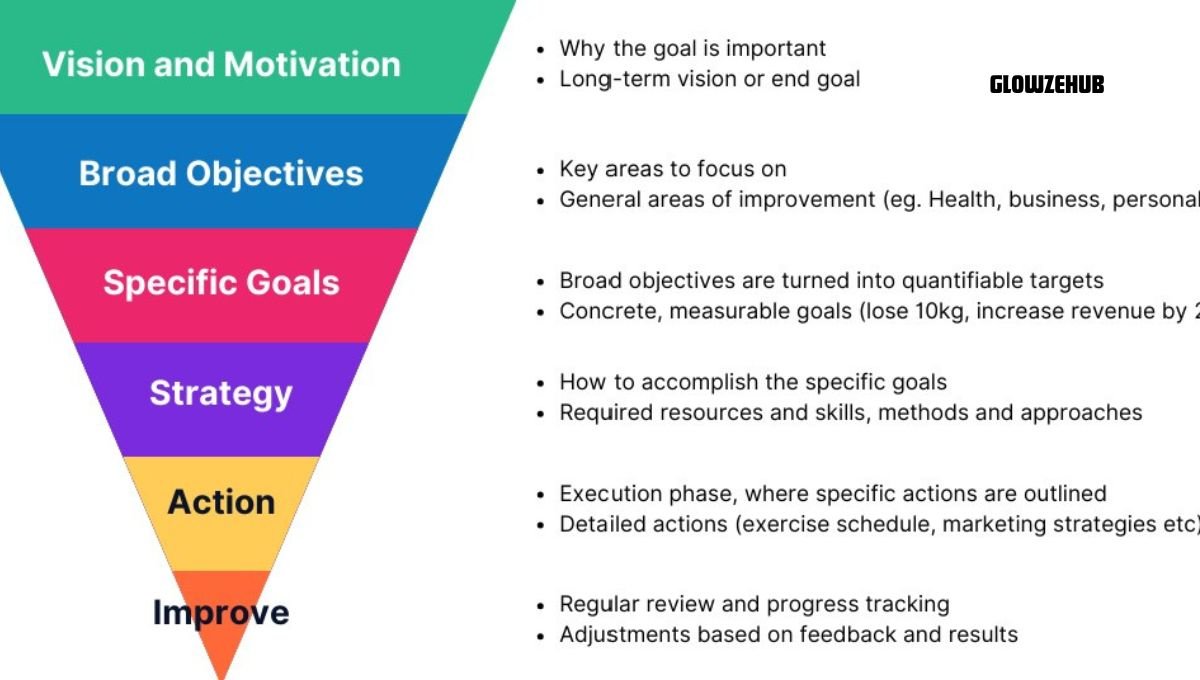What Does Complete Health and Fitness Mean? Being fit and healthy is essential to leading a happy and full life. It includes not just our bodily health but also our mental, dietary, and social well-being.
Unfortunately, many people have erroneous beliefs about what it takes to be healthy and fit. These individuals frequently focus entirely on their physical appearance or particular workout regimens.
In actuality, obtaining comprehensive health and fitness necessitates taking a holistic strategy that tackles each of these components in a balanced and sustainable manner.
Elements of Overall Fitness and Health
This article will discuss the significance of overall health and fitness, dissect it into its parts, and offer practical advice for achieving holistic wellness.
Let’s begin with the four pillars of a healthy and fit lifestyle:
Nutritional wellness is the cornerstone of leading a healthy lifestyle!
We recommend prioritizing a well-rounded diet consisting of unprocessed foods and avoiding fixation on popular or fad-driven eating regimes. Emphasizing whole, nutritious foods ensures a sustainable approach to health, promoting overall well-being without undue emphasis on passing diet trends or plans.
opt for lean proteins such as chicken, fish, and legumes, which are essential for muscle repair and overall health. Whole grains like quinoa and brown rice offer sustained energy and fibre for digestive health. Include a range of vibrant fruits and vegetables high in antioxidants, vitamins, and minerals. Include healthy fats from nuts, seeds, and avocados for heart and brain function support.
Proper hydration is crucial for optimal bodily functions, facilitating digestion, regulating body temperature, and aiding in waste removal. Water and electrolytes are pivotal in maintaining overall health, ensuring cells function efficiently and effectively. Adequate hydration supports cognitive function, muscle performance, and overall well-being, making it essential to prioritise daily fluid intake.
Physical Fitness
A vital component of total wellbeing is physical fitness, which has four main parts:
- Cardiovascular Endurance: The efficiency with which your heart and lungs deliver oxygen to your muscles during extended physical exertion is vital for sustained performance and endurance. This process, known as aerobic capacity or cardiorespiratory fitness, determines how effectively your body can utilise oxygen to meet the demands of prolonged activity, supporting overall physical stamina and athletic performance.
- Muscular Strength and Endurance: When discussing your muscles’ ability to generate force and perform tasks repeatedly without experiencing exhaustion, we refer to their endurance capacity. This capacity reflects the muscles’ resilience and efficiency in maintaining performance over extended periods, which is crucial for activities requiring sustained effort or endurance sports.
- Flexibility: This refers to the flexibility or range of motion achievable at your joints. It indicates how joints can move through various angles and positions, influencing overall mobility, posture, and the ability to perform daily activities and exercise effectively.
- Body Composition: This concept refers to the distribution and balance of body fat, muscle, bone, and water. It is a critical indicator of overall health and fitness, impacting factors such as metabolism, strength, and susceptibility to certain health conditions. Understanding and managing this balance through diet, exercise, and lifestyle choices is essential for achieving and maintaining optimal health.
Mental Health
Emotional well-being encompasses the capacity to both experience and express a diverse spectrum of emotions in a balanced and constructive manner. It involves understanding, managing, and responding to emotions effectively, which supports mental resilience, healthy relationships, and overall psychological health. Achieving emotional well-being entails developing self-awareness, coping strategies, and interpersonal skills to navigate challenges and cultivate a positive outlook.
Effective stress management techniques are crucial for preserving equilibrium and warding off burnout. Simultaneously, nurturing robust self-esteem and confidence empowers individuals to confront challenges with resilience and unwavering resolve. These attributes collectively foster mental and emotional fortitude, enhancing one’s ability to navigate life’s complexities with poise and perseverance.
Social Health
Social health encompasses cultivating and sustaining meaningful relationships with others characterised by mutual respect, trust, and support. It also involves effective communication skills that facilitate positive interactions and understanding among individuals. This aspect of health contributes significantly to emotional well-being, fostering a sense of belonging, connection, and overall satisfaction in personal and professional interactions.

Benefits of Total Health and Fitness
Several advantages start to materialize when you concentrate on striking that balance between overall health and fitness:
Enhanced Life Quality
A well-rounded approach to health and fitness integrates physical exercise, balanced nutrition, adequate rest, and stress management. This synergy boosts physical strength and resilience and enhances mental clarity, emotional stability, and overall quality of life, fostering greater satisfaction and improved everyday performance.
Enhanced Vitality
Regular exercise, proper nutrition, and sufficient rest can significantly boost energy levels, increasing daily alertness and productivity. Exercise enhances circulation and oxygen delivery, while nutritious food provides essential nutrients for sustained energy. Quality sleep supports cognitive function, ensuring optimal mental performance and overall well-being.
Increased Focus and Mental Clarity
Prioritising mental health through activities that promote relaxation and mindfulness can yield significant benefits. These activities improve concentration, lower stress levels, and sharpen decision-making skills, improving cognitive function. Individuals can better manage challenges and optimise their mental well-being by fostering a calm and focused mindset.
Decreased Chance of Chronic Illnesses
It is possible to reduce the likelihood of developing chronic illnesses such as cardiovascular disease, diabetes, and certain types of cancer by adopting a relatively balanced lifestyle.
Improved Handling of Stress
Using good stress management practices, such as physical activity, meditation, and the support of others, can assist you in preserving your emotional equilibrium and handling the problems that life presents more efficiently.
Extended Life Expectancy
A longer, healthier life can be yours when you prioritise your physical, mental, dietary, and social health. You’ll be better off overall and less likely to develop chronic diseases when you do all four.
Strategies for Achieving Total Health and Fitness
These are the top strategies to begin attaining complete health and fitness right now:
Establish sensible objectives

Setting realistic and detailed goals is critical for staying motivated and tracking progress.
For example, instead of striving to lose a lot of weight quickly, try to lose one or two pounds per week.
Similarly, rather than committing to an excessively ambitious fitness regimen, start with a manageable routine and gradually increase the intensity and duration.
Establish a Well-Balanced Exercise programme
Spending hours in a weight room is not part of the definition of exercise. You can think of it more as a game called “Choose Your Adventure,” in which you combine a variety of workouts that focus on flexibility, strength training, and cardiovascular activity.
The recommended weekly allowance of aerobic exercise is 150 minutes of moderate-intensity (walking, for example) or 75 minutes of high-intensity (cardio kickboxing, for example).
Additionally, we advise undertaking strength training at least two days a week. This can include resistance band exercises, weightlifting, or bodyweight routines.
Stretching exercises should be a part of your routine to maintain your flexibility and avoid injuries.
Give Mental Health Practices Priority
Schedule time for mental health-promoting activities like journaling, meditation, and indulging in enjoyable hobbies.
Create a sleep routine to guarantee enough sleep, and use relaxation methods to successfully handle stress, such as progressive muscle relaxation or deep breathing.
Stress: Eating a Healthy Diet
We strongly advise reducing the number of processed meals and added sugars you eat.
Replace these with an assortment of entire grains, fruits, vegetables, lean meats, and healthy fats.
Additionally, ensure you drink enough water throughout the day containing electrolytes to be well hydrated.
Consider obtaining a customise nutrition plan if you require assistance with your diet.
Develop Social Networks
The development and maintenance of solid social interactions can have a profound effect on one’s mental and emotional health.
Strive to maintain your friendships and look for social events that will help you establish connections with other people.
Great communication skills will help you build stronger bonds with others and constructively settle disputes.
Participating in group exercise sessions or community activities is an excellent method to build social ties while pursuing your fitness and health objectives.
Discover Your Complete Fitness and Health
By empowering you to achieve a sustainable and balanced lifestyle, a holistic approach to wellness promotes long-term health and happiness.
With Total Health and Fitness, start your journey towards a transformed life.

Set up a free consultation right now! One of our committed specialists is available for in-person or virtual discussion. We can’t wait to help and encourage you on your thrilling journey towards wellness.
